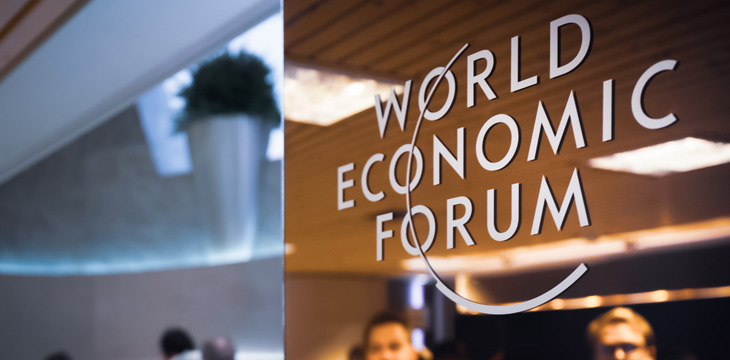|
Getting your Trinity Audio player ready...
|
The World Economic Forum (WEF) has opened discussions into the development of an international framework of digital IDs based on blockchain technology.
The conversations were steered by WEF’s Digital Identity Initiative at the Forum’s annual workshop, which was themed “Improving Livelihoods with Digital ID,” focusing on leveraging distributed ledgers. Hedera President Brett McDowell took part in the discussion, noting that relying on blockchain offers a higher level of privacy than other systems.
With the use of blockchain, the requirement of an identity provider is eliminated as users keep the metadata of their digital identities on public ledgers while storing personal information in their digital wallets. Personal information stored in digital wallets may be signed by authorized entities with the “cryptographic signature” to verify the information’s authenticity.
“This system allows the user to control when information is shared and who it is shared with while enabling verified personally identifying information sharing to satisfy know-your-customer, anti-money-laundering or anti-terrorist-funding compliance,” McDowell said.
McDowell argues that the rise of blockchain-based digital IDs will offer economies multiple benefits, with fraud prevention and financial inclusivity at the top of the pack. According to McDowell, 850 million people have no access to any official documentation, while a large number of the world’s population are plagued by privacy concerns that are solvable using digital ID.
Despite the benefits, McDowell submitted that the development of digital ID faces the challenge of being a relatively new offering and that its underlying technology is recording fast-paced innovation given emerging market solutions. He disclosed that the WEF would be focussed on drawing “generalizable lessons from pilots” and applying “them at scale to deliver a foundational building block for solutions to global challenges.”
Digital IDs pique the interest of industry stakeholders
Web3 founders have been tinkering with digital IDs recently, but so far, their approach has been patchy, lacking a unified approach. In the Philippines, Twala has launched its proprietary self-sovereign ID (SSI), designed to give users greater control over the use of their private data to prevent incidents of identity theft. With nearly thousands of investors being victims of identity fraud, Twala’s offering received praise from DLT enthusiasts for eliminating intermediaries in handling users’ data.
Watch: Blockchain for Government Data & Applications

 02-17-2026
02-17-2026 




